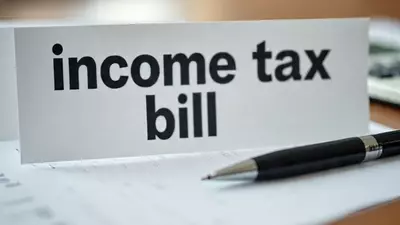In a major legislative update, the government has officially withdrawn the Income Tax Bill, 2025, which was initially presented in the Lok Sabha on February 13 as a replacement for the Income Tax Act of 1961. A revised and updated version of the bill is set to be introduced in Parliament on August 11, incorporating most of the feedback from the parliamentary Select Committee.
This move comes in response to concerns about multiple versions of the bill leading to confusion. To streamline the legislative process, a single, consolidated draft will be tabled for discussion and approval.
Why the Change Was Needed
The bill that was withdrawn had been under scrutiny by a 31-member Select Committee led by BJP MP Baijayant Jay Panda. The committee submitted its detailed report on July 21, running over 4,500 pages and including 285 recommendations aimed at refining the draft legislation.
The Finance Minister, Nirmala Sitharaman, officially withdrew the bill on Friday during a brief Lok Sabha session that was later adjourned due to opposition protests. Just before the adjournment, Krishna Prasad Tenneti, presiding over the session, asked Sitharaman to move the withdrawal motion, which she promptly did.
What to Expect in the New Bill
The revised legislation is expected to be significantly clearer and more taxpayer-friendly. Speaking to the media, Mr. Panda highlighted the need to simplify the tax code for ordinary citizens and business owners.
“The current Income Tax Act of 1961 has undergone more than 4,000 amendments and contains over 5 lakh words. It has become too complex. The new bill simplifies that by nearly 50 per cent — making it far easier for ordinary taxpayers to read and understand,” Mr. Panda stated.
He further pointed out that small enterprises and medium-sized businesses would benefit most from the new structure, especially those without in-house legal or financial experts.
Major Policy Changes Proposed
Among the key policy reforms suggested in the updated bill are:
-
Clarification on Property Income Deductions: The current 30% standard deduction on house property income, available after deducting municipal taxes, is proposed to be explicitly written into the law for clarity.
-
Home Loan Interest Benefits for Rented Homes: Under the new proposal, the tax deduction on interest paid for home loans—previously applicable only to self-occupied properties—would extend to rented properties as well.
-
Faster TDS and TCS Refunds: The committee also addressed the widespread issue of delays in refunds for Tax Deducted at Source (TDS) and Tax Collected at Source (TCS). The new draft aims to simplify and speed up the refund process under the Central Board of Direct Taxes’ “Enforcement with Empathy” policy.
-
Relief for Religious Trusts: The new bill preserves the tax exemption on anonymous donations made to religious non-profit organisations. However, trusts engaged in both religious and other charitable activities like running schools or hospitals will be subject to taxation on such donations.
-
Rebate Expansion Under Section 87A: A major relief for middle-class taxpayers is the revision in rebate eligibility. The income limit for claiming a rebate has been increased from Rs 7 lakh to Rs 12 lakh, and the maximum rebate amount has gone up from Rs 25,000 to ₹60,000 under the new tax regime (Section 115BAC). Marginal relief will also continue for those slightly exceeding the income threshold.


